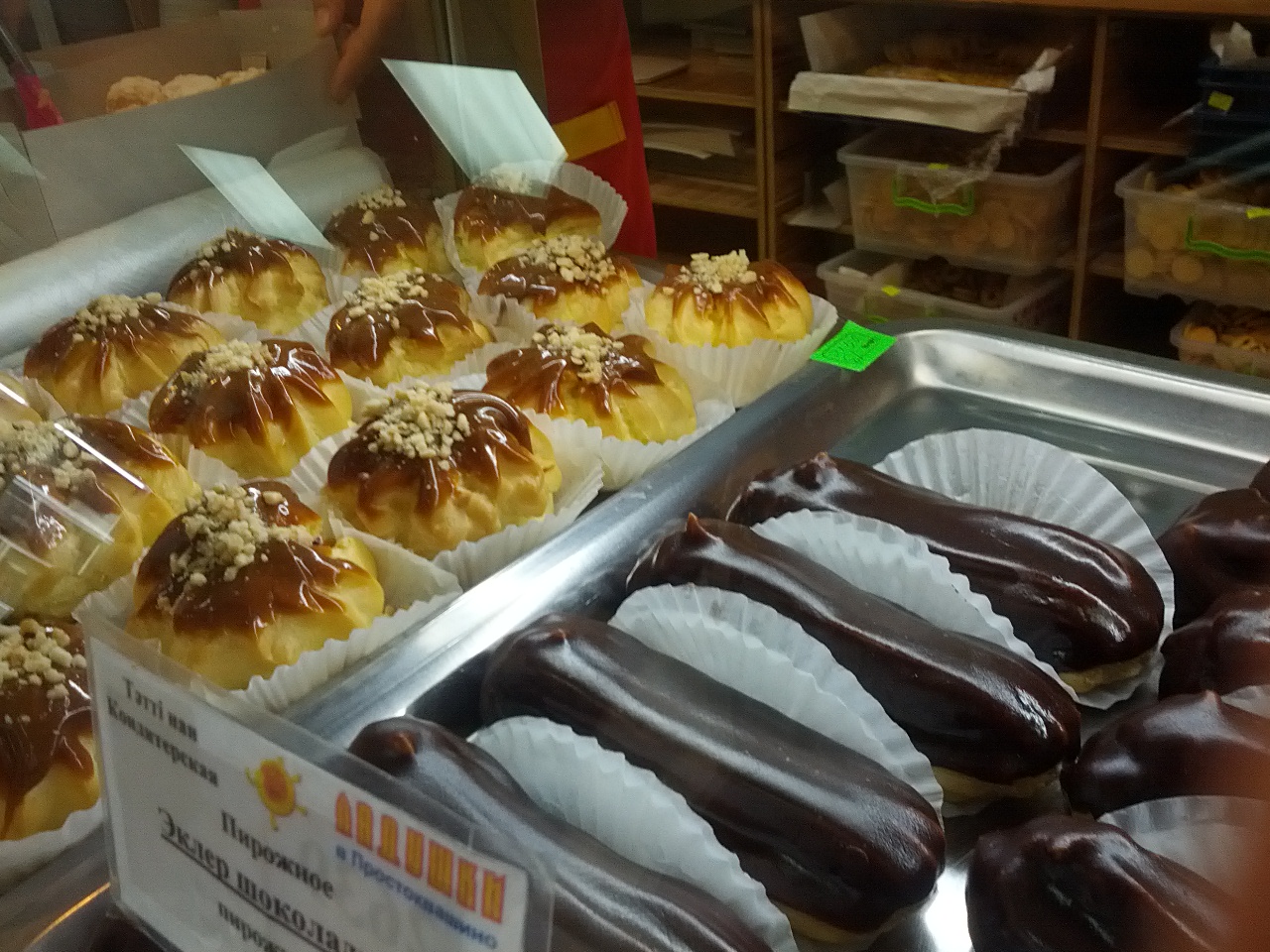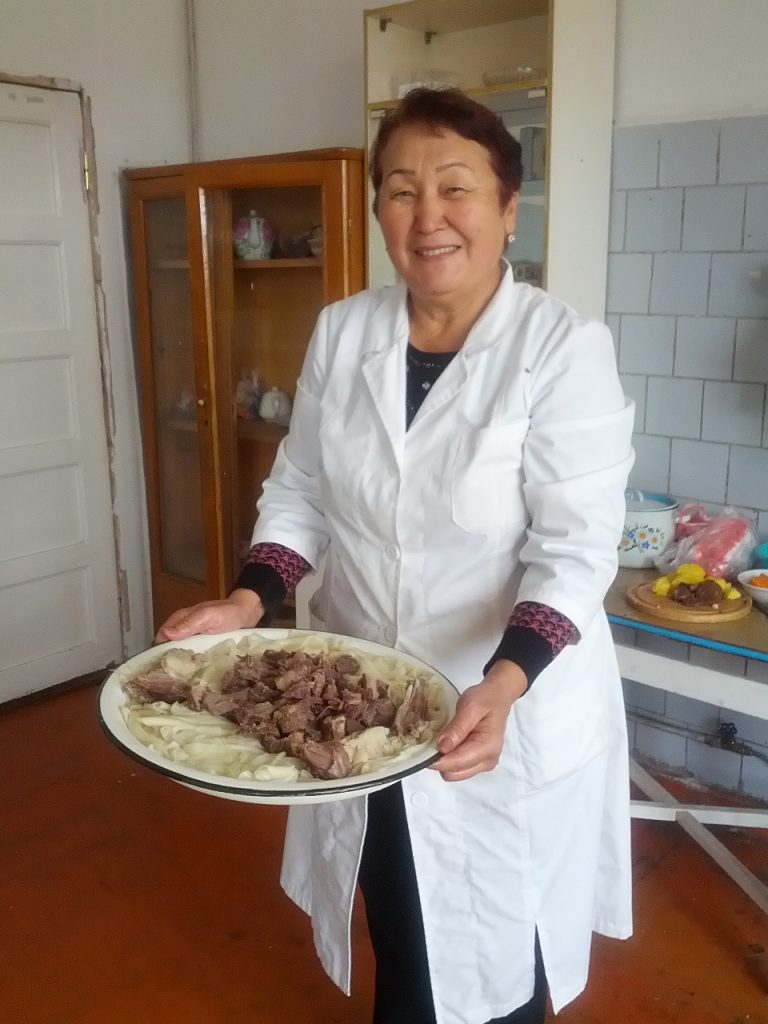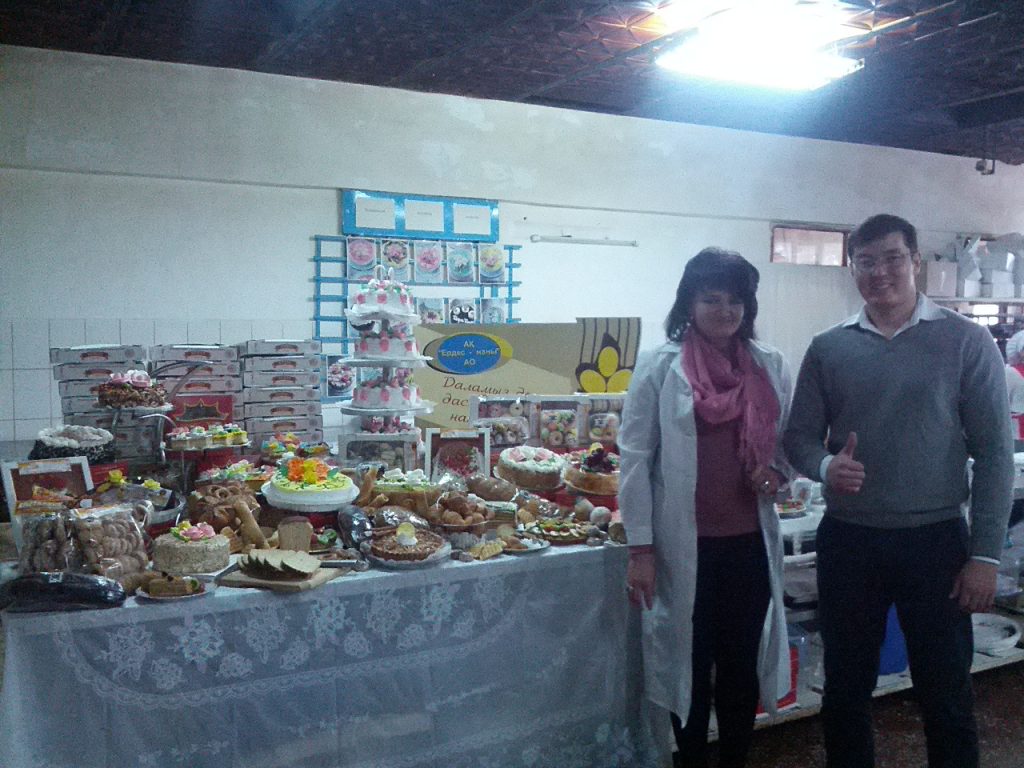Building Potential at a Kazakh Bakery

My last assignment in Kazakhstan was at a local bakery in a small town about two hours from Shymkent in the south of Kazakhstan. This particular bakery was a family business that the current owner inherited from his mother, who in turn had inherited it from her parents.. The owner had no technical baking skills – actually, he’s an IT guy! He was working with all the women that his mother had hired before he took over the business. They kind of looked at him like a son and took care of him, but they hadn’t grasped that new concept that he was now in charge.
They wanted to improve their products – the taste, the appearance, the texture – and expand distribution, and I was there to help them. They had about 10 small outlets within the town and would occasionally send shipments to bakeries in Shymkent and Almaty, but they wanted to bring their products to higher-end markets in Astana and Aktobe. They also wanted to export to China, so part of my job was to standardize their packaging to increase shelf-life and determine what sizes are most feasible for shipping.
This was one of the more difficult assignments I’ve done, because I didn’t have a translator. The owner was the only person in the entire facility who spoke English. He’s very capable and enthusiastic, and has a lot of passion, but he also has to run the business on his own. He has to sign cheques, deal with staffing and solve internal problems, so half the time he couldn’t be with me to translate–there were times when I would be walking around the place trying to use sign language to work with the staff, but it wasn’t successful!

I looked at the map of Kazakhstan before I went in, but I didn’t know this was such a small town with old infrastructure, and that included the bakery. The kitchen floor was a pebble concrete that had worn out, so some of the pebbles had broken free and left dents in the floor. The staff tried their best to keep it sanitary, but the space was not properly enclosed. And there was neither heat nor air conditioning. I was there in the winter, and It was about 4-5° in the workspace during the day. I had to wear two jackets–it was like walking around in a fridge! But more important than that, the temperature affects production. When it’s too cold, everything sets and seizes. If it’s too humid, boiling sugar for glazing doesn’t work and you can’t work with the chocolate. If the temperature is too high, dough doesn’t rise properly, and of course in the heat of summer, everything melts.
As a Canadian going into these countries, we can go in and support them the way they need us to help. When I go on assignment, I ask the client to give me a company jacket, because I want them to see me as one of them. I’m Chinese, so when I’m in Kazakhstan I’m one of the Kazakhs, and my mission on these assignments is to look at what the client actually produces, and try to improve it. I’ve travelled a lot, so when it comes to life abroad, nothing really shocks me. When I see something unexpected, I think, “Oh, that’s great! That’s what I’m here to see!”

Their products were a mix of old fashioned Soviet Union recipes, regional Kazakh products and Western-style treats. When it came to the Kazakh products, I did not know the standard of taste or how they’re traditionally done, so I was only able to help them improve their baking techniques to make the products higher quality. But I was able to bring them more of the Western-style baked goods that they were trying to imitate, since my background is in French pastries. I gave them new recipes, either by using my own recipes or improving the existing recipes. The bakers were able to produce what they were supposed to. Most were not trained bakers, but they were very dedicated to their jobs. The most important thing in a bakery is knowing how to multitask, and they were very good at that. When they had something in the oven, for example, they would be preparing something else and using their time efficiently. As for the owner, he didn’t know anything about flour or sugar, so I ended up helping him with developing the business, since I have my own business. He received a lot of support from me, and I’m pleased that he was pleased to have the opportunity to train with me.
Donate Today
Your donation helps connect businesses, governments and community organizations with the skills and support to achieve their goals and contribute to inclusive growth. When you give to Catalyste+, you empower women and drive progress in harmony with nature. You’re helping people get what they need to improve their lives and build strong communities.